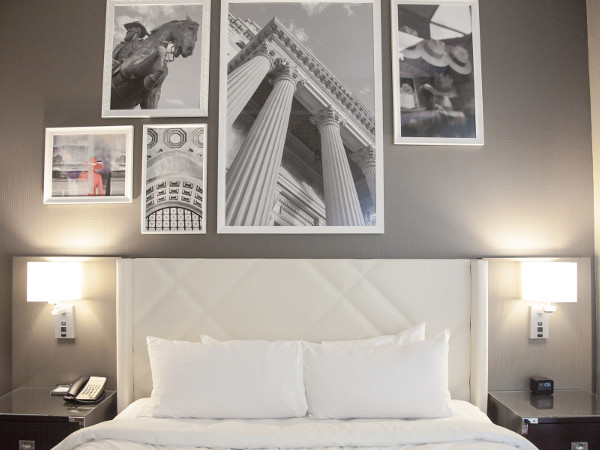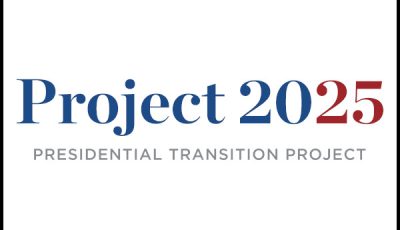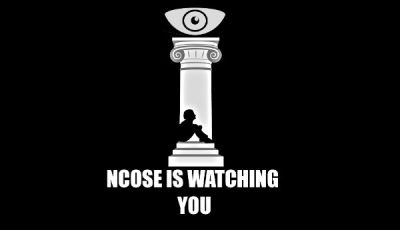Hilton Dumps PPV Porn; Internet Reportedly Still Exists
 WASHINGTON – In a move being hailed as a “victory” by the National Center on Sexual Exploitation (NCSE), Hilton Worldwide has confirmed a policy change in which the hotel chain will remove on-demand pornographic movies from its pay-per-view entertainment options.
WASHINGTON – In a move being hailed as a “victory” by the National Center on Sexual Exploitation (NCSE), Hilton Worldwide has confirmed a policy change in which the hotel chain will remove on-demand pornographic movies from its pay-per-view entertainment options.
“Many hotels have long been concerned with human trafficking that could occur on their properties, and since pornography contributes to the demand for sex trafficking, Hilton’s decision to remove their pay-per-view pornographic movies is a significant step in the right direction,” the NCSE said in a statement released Monday. “In addition to the links with trafficking, pornography also contributes to sexual violence, child exploitation, and lifelong porn addictions. It is praiseworthy that Hilton is willing to listen to its customers who are concerned about the harms of pornography, and to reject profiting from sexual exploitation.”
In a statement explaining its policy change, Hilton Worldwide said it had “listened carefully” to customers and “determined that adult video-on-demand entertainment is not in keeping with our company’s vision and goals moving forward.”
According to media consumption expert Walter Duidelijk, Hilton’s change in policy represents “a serious blow to millions of travelers who don’t possess smartphones, tablets, laptops, portable DVD players, or legs with which they can walk to a taxi stand.”
“Many uninformed people probably will dismiss Hilton’s bold move as a meaningless and moot gesture, in part because it is well known pay-per-view buy rates for pornographic movies have been plummeting annually since the advent of in-room WiFi service, but this really is a very big deal,” Duidelijk said. “Among other things, it means Hilton guests who want to watch porn and are already lying in bed will have to actually get out of bed to retrieve their mobile devices—unless they had the foresight to place said mobile device on the nightstand prior to adopting a horizontal pose, naturally.”
Franklin Wzbudzil, a medical supplies sales executive who spends hundreds of nights on the road each year, said he’s “absolutely flabbergasted” by Hilton’s decision, which he claims will leave him “bored, unstimulated, and needlessly blue-balled” during long business trips.
“I’m not some snot-nosed millennial who enjoys squinting at my phone for hours at a time,” Wzbudzil said. “For example, I like chicks with big boobs. Nothing looks big on a three-inch-wide screen.
“I’ve been thinking about buying one of those Surface things, anyway, so I guess it’s time to take the plunge,” he added.
Hilton’s change in policy represents “a serious blow to millions of travelers who don’t possess smartphones, tablets, laptops, portable DVD players, or legs with which they can walk to a taxi stand.” —Walter Duidelijk, media consumption expert
Other porn-loving Hilton guests aren’t convinced Hilton’s new policy will have a significant impact on how, where, or how often they masturbate during their travels.
“Dude, who the fuck watches hotel pay-per-view porn anyway?” asked Bruce Cooper, a sports marketing professional who says he always stays at Hilton hotels during his trips, given a choice.
“They actually censor that shit, you know,” Cooper added. “Seriously; the one and only time I ordered on-demand porn, I selected a title called Teenage Cum Cravers and they didn’t even show the fucking facials. What kind of shit is that, I ask you? In the end, I wound up having to pay for in-room WiFi anyway, just so I could get some closure on the climactic gangbang scene at the end.”
Hilton’s policy change also leaves a vacancy on the NCSE’s “Dirty Dozen” list, leading to wild speculation as to who might take the place of the now “clean” hotel chain.
“If you look at the NCSE’s list, none of the companies are directly involved in the production of pornography, so presumably we won’t see a porn studio take Hilton’s slot,” Duidelijk observed. “Given how much of the crucial infrastructure for the internet remains the property of Sprint Communications, perhaps the NCSE will dial in on them next—or maybe they’ll surprise us all by pointing the finger at one of the Fox family of companies. After all, it’s hard to imagine Patrick Trueman being a big a fan of Family Guy.”
Dr. Richard Epais, a professor of media arts at the University of California-El Centro, said if NCSE and its anti-porn allies “want to remain relevant,” they might consider changing their “name-and-shame” tactics—or at least change the targets of their campaign.
“The current NCSE ‘dirty dozen’ includes the U.S. Department of Justice, Carl’s Jr., Facebook, and the American Library Association (ALA),” Epais noted. “Public relations wars generally boil down to a popularity contest between brands. If you seriously think the NCSE is going to win a popularity contest with fucking Facebook, I have some news for you: You can’t share pictures of your cats on the NCSE website.
“NCSE might have a shot against the ALA, because nobody in this country under the age of 45 will read a book unless forced to do so at gunpoint,” Epais added. “But anybody who thinks they’re going to get Americans to stop eating hamburgers topped with potato chips and hot dogs just because the restaurant offering the burger in question uses attractive, bikini-clad women in its advertising fundamentally misapprehends the mindset of the American male heterosexual meat-eater.”
Image (c) 2015 Hilton Hotels & Resorts














